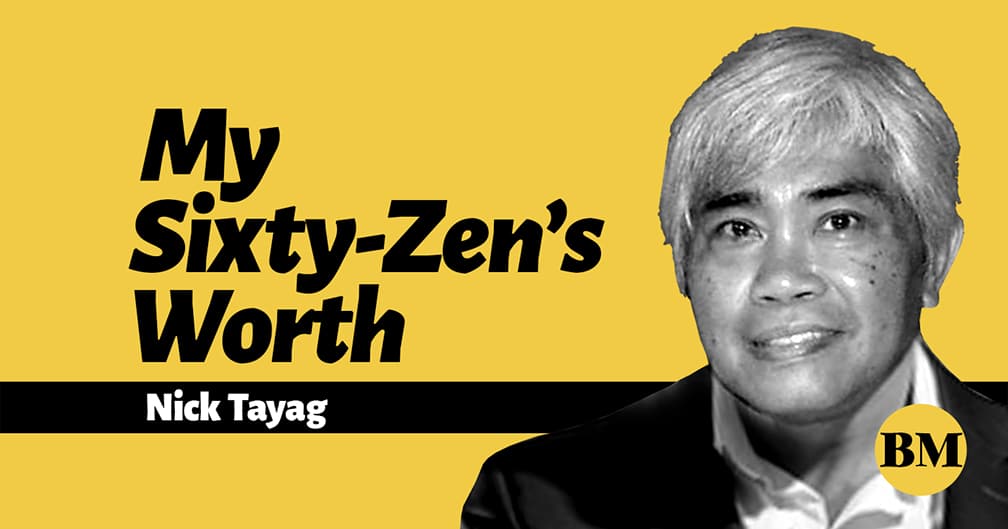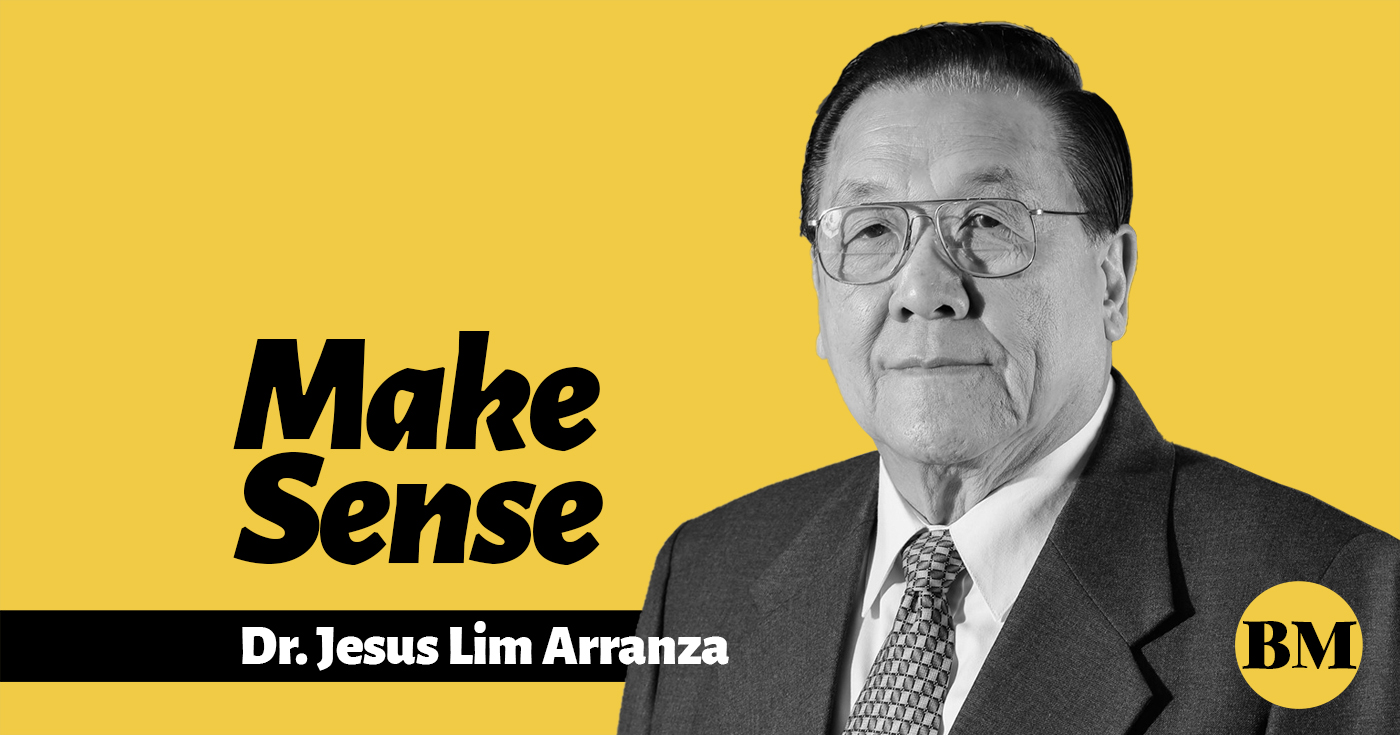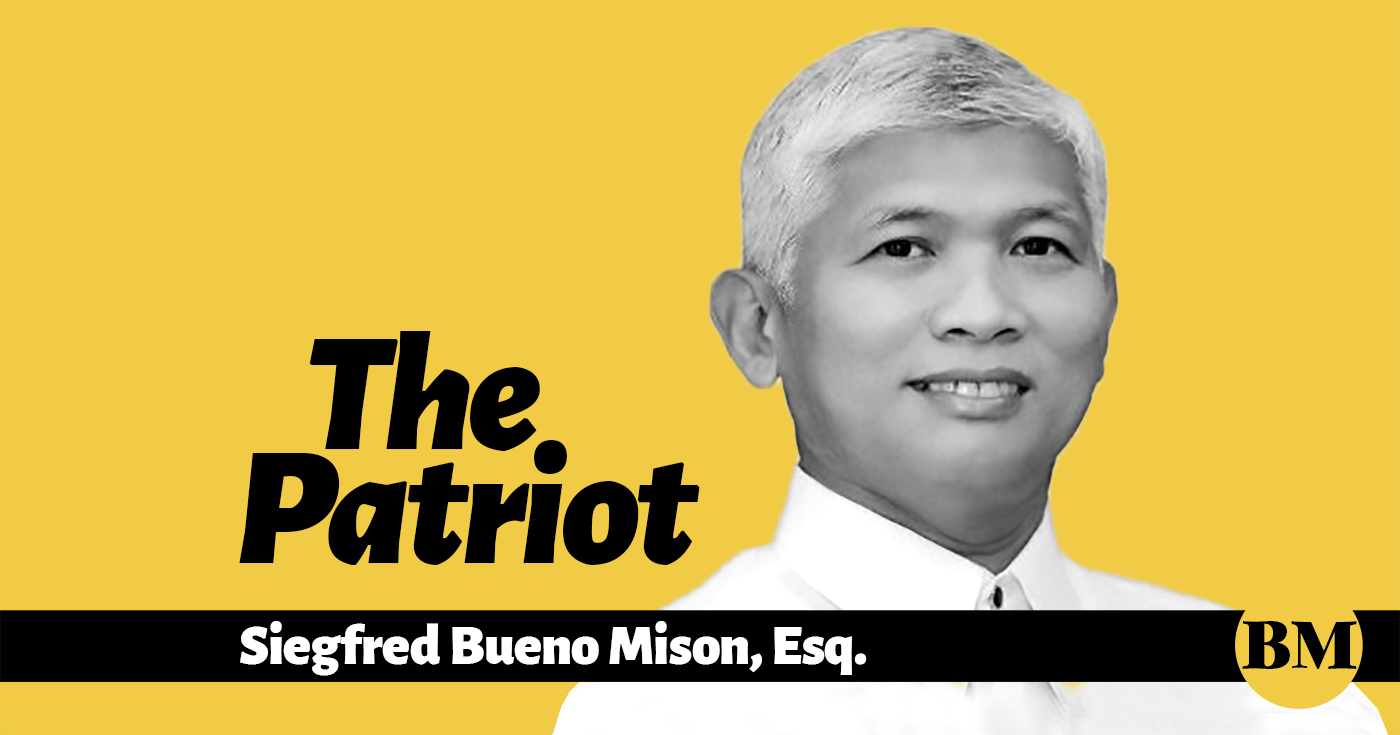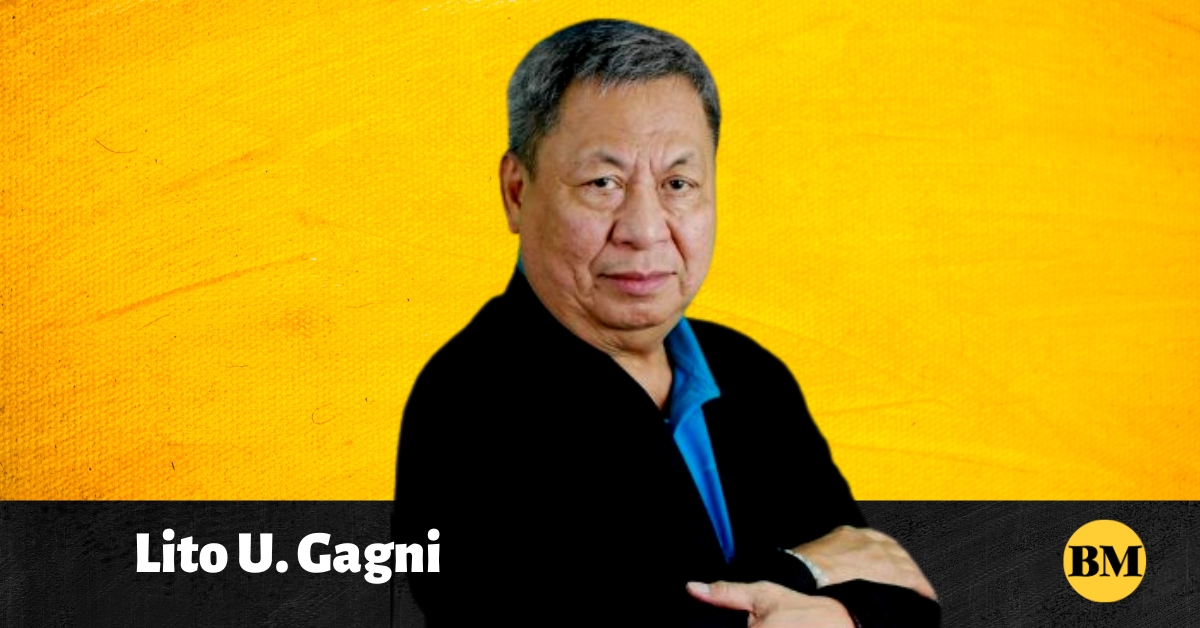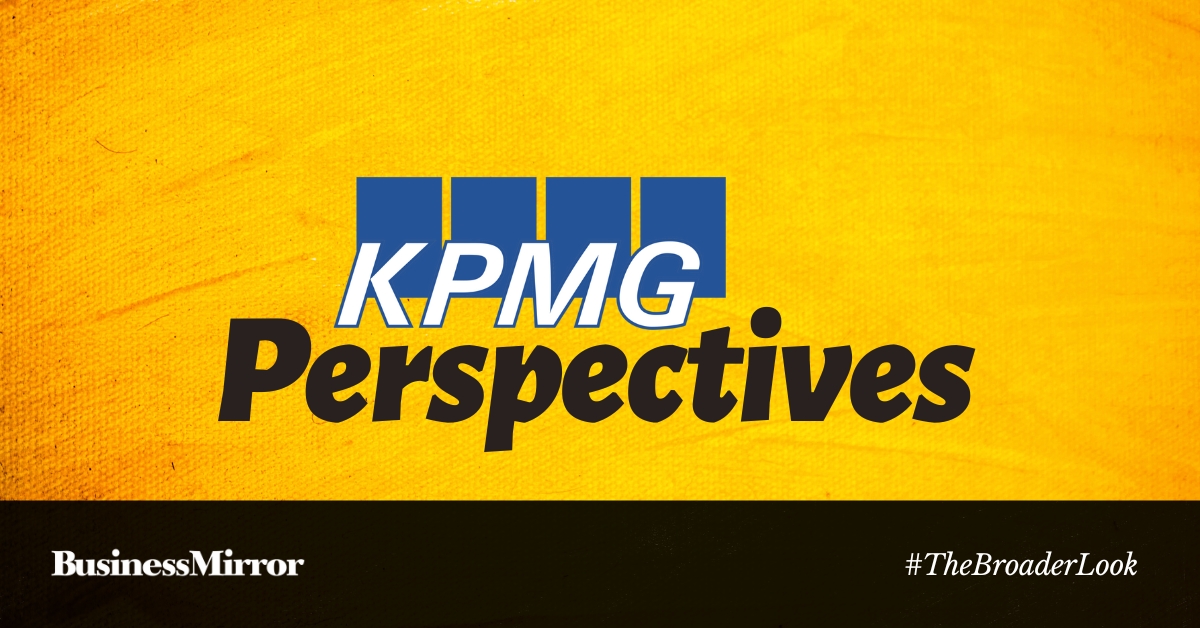There’s an old joke that goes: God must have a terrific sense of humor. Why? He created people.
With everything we’ve seen of mankind so far, isn’t humanity laughable? Consider the endless cycle of man-made wars that annihilate millions, which end in truces that only lead to more wars. While the world’s food supply is dwindling, we see farmlands and forests being thoughtlessly bulldozed in the name of progress.
Did you see the local opera buffa where we have a lawmaker whose family’s business is buying farmlands to convert them into subdivisions? In spite of the impropriety of it all, she gets herself to chair a committee that is supposed to oversee and ensure the productivity of farmlands. When a fellow lawmaker raises the alarm on the rapid conversion of farmlands into residential projects, she asks with an air of nonchalance: “Where will the people live if you don’t build subdivisions?”
Yes, we chuckle at her cluelessness, but it hurts.
Alexandre Kojeve, the author, says: “Human life is a comedy, one must play it seriously.” Maybe his term “play it” means to give some serious thought as to why life is a comedy.
My problem with our revered sages and divine messengers is that they all seem to be too serious, or too gloomy. Zoroaster, Buddha, Confucius, Lao Tse, Jesus, Mohammad. Didn’t any of them have a sense of humor? Didn’t they enjoy a joke or two once in a while when they were in the company of their followers?
Solemnity and pessimism are considered hallmarks of wisdom. But life is too complex to be painted solely in shades of doom and gloom. Laughter would have been an effective way to deliver their pithy words of wisdom.
There is a series of some 90 novels and novellas by Honoré de Balzac, known in the original French as La Comédie humaine or “Human Comedy.” Published in the 1800s, the books depict a gallery of over 2,000 characters from Parisian society of that time, serving as optics on humankind with all its follies in which the individual ego seemed to have become the sole measure of things.
As you meet Balzac’s characters, you’re bound to say “that’s me!” We end up laughing at ourselves, and the vivid sketch portraits people we know.
It is like watching a “farce,” a type of comic drama that typically involves ludicrously improbable situations. The thing is the characters don’t know they are acting foolishly like idiots.
As the years go by, I grow more firmly convinced that comedy is truer to life than tragedy, not just onstage but in all the narrative art forms. In fact, even in tragic dramas, I find comic elements in the depiction of human folly.
The key to a more satisfying life, especially late in life, is detachment. Buddha nails it when he says that suffering is caused by too much attachment, the obsessive pursuit of things and impossible ideals that only serve to complicate our lives.
To get that detached perspective, we need to zoom out a little further from the scene that’s in front of us. It enables us to cope much better with our own follies and absurdities.
Indeed, emotional disengagement allows us to see life from a higher perspective than usual, and seeing it objectively rather than from a narrow self-focused perspective, then “comedy is wiser than tragedy,” as some sage noted.
There are many things in my life which I thought were embarrassing failures, set-backs or humiliations, but looking back at them from a distance or placing them in the so-called grand scheme of things, I think of them now as laughable, the actions of a stupid jerk with an inflated sense of self-importance. I had put myself in situations that now look silly and ridiculous.
H.L. Mencken, the satirist, wrote: “Human life is basically a comedy. Even its tragedies often seem comic to the spectator… A man who can laugh, if only at himself, is never really miserable.”
Filipinos have an innate resilience because we know how to laugh in the face of the most tragic circumstances. Maybe, we have in our cultural DNA the reflexive ability to separate ourselves from what is happening, no matter how calamitous it may be. It is our saving mechanism that has kept our race afloat for the longest time.
Look at our elected leaders and our opinion makers. They say things that are often ridiculous. Sometimes we tell ourselves, why is this fellow pretending to be a great leader? He’s just a fool. I can do better.
This is why we need people who are not afraid to prick our inflated and serious sense of self. Comic artists make us all laugh by saying out loud what we fear in our heart of hearts—that we have been fools, and are now paying the ultimate price for our foolishness. Let us use humor to good use and perform a powerful social function, from breaking prejudices to holding the jokers in power to account.
I have four books on comedy and the central lesson I got is that we are imperfect, “cracked” and prone to error, but our sense of humor is our saving gift and we can still be happy. With our humor, we possess mental flexibility. We can view situations from several perspectives and see many possibilities. Comic characters played by Chaplin, Buster Keaton, the Marx brothers, Peter Sellers and others do not have fixed categories for thinking or acting. They can view situations from several perspectives and see many possibilities and then adapt creatively.
I don’t know whether having a tremendous sense of humor really does increase creativity, but experimental research suggests that when people know how to laugh and are having fun while doing something, they are more creative in their problem solving and more efficient in their thinking, planning, and judgment.
Don’t take life so seriously. Learn from it, yes. But tread on it with bemused footwork, dancing to the beat of Stephen Sondheim’s song:
Goodness and badness
Man in his madness
Something erratic
Something dramatic
Open up the curtain— Comedy tonight!

